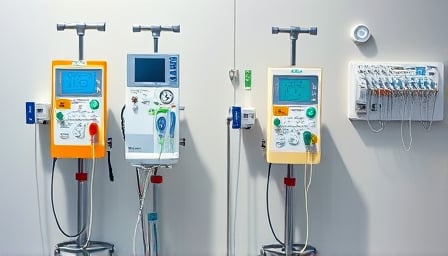Corporate Analysis: Fresenius Medical Care AG
Strategic Advancement of the FME Reignite Initiative
Fresenius Medical Care AG (FMC) has accelerated its FME Reignite strategy by increasing equity stakes in its operational units. This move consolidates control over key business segments, enabling the company to streamline decision‑making, align incentives across the value chain, and unlock synergies in procurement, production, and service delivery. By tightening ownership, FMC positions itself to better capture margins in the highly regulated kidney‑care market and to deploy capital toward research and development, particularly in wearable dialysis technologies and digital health platforms.
The strategy’s emphasis on ownership also serves to protect against external takeover bids and to enhance managerial accountability. In an industry where reimbursement policies and regulatory approvals are paramount, having a stronger internal governance structure reduces exposure to policy shifts and facilitates rapid adaptation to evolving patient needs.
Performance in the DAX Index and Stock Dynamics
During the latest trading session, FMC’s shares registered a modest uptick, maintaining a position above critical moving averages such as the 50‑day and 200‑day lines. This technical strength underscores investor confidence and suggests a bullish sentiment that may persist as the company delivers on its growth blueprint. The upward trajectory is consistent with broader market trends that favor healthcare providers offering essential and recurring services.
Nonetheless, the DAX index, which tracks Germany’s 40 largest companies, experienced a slight contraction after an earlier surge. The pullback is largely attributed to profit‑taking by investors following a sharp upturn in the preceding session. Despite this macro‑level volatility, FMC’s equity has demonstrated resilience, with price oscillations remaining within a narrow band around the current equilibrium. This stability signals robust fundamentals and effective risk management.
Global Operations and Service Portfolio
FMC’s diversified portfolio spans kidney dialysis, manufacturing of dialysis equipment, and clinical laboratory testing. Each segment operates in distinct regulatory environments, yet all share a common focus on chronic disease management. The dialysis division is the largest revenue driver, serving an aging population that continues to grow in both developed and emerging markets. The equipment manufacturing arm benefits from economies of scale and a strong global supply chain, while the laboratory testing segment leverages data analytics to enhance diagnostic accuracy and patient outcomes.
This breadth of services affords FMC cross‑sell opportunities and risk mitigation against sector‑specific downturns. For instance, advancements in diagnostic testing can inform personalized dialysis regimens, creating a feedback loop that reinforces patient retention and revenue diversification.
Adaptive Innovation and Competitive Positioning
Innovation remains central to FMC’s strategy. The company invests heavily in digital health solutions, including remote patient monitoring and AI‑driven treatment optimization. These initiatives not only improve clinical outcomes but also enhance operational efficiency, thereby reducing cost per treatment and improving margins.
Competitively, FMC benefits from a first‑mover advantage in the global dialysis market. Its extensive dealer network and established brand recognition provide barriers to entry for newer entrants. However, the company must navigate competitive pressures from emerging technologies such as home dialysis systems and alternative renal replacement therapies. Maintaining a research pipeline that anticipates these trends will be critical to sustaining its market leadership.
Broader Economic Context
Healthcare expenditures continue to rise globally, driven by demographic shifts, increased chronic disease prevalence, and heightened consumer expectations for quality care. In this environment, companies that offer essential, high‑quality services with scalable delivery models are well positioned. FMC’s focus on kidney care—a necessity rather than a discretionary service—aligns with these macroeconomic forces.
Moreover, the current low‑interest‑rate backdrop facilitates capital raising through equity and debt markets, enabling FMC to fund expansion projects without significantly diluting shareholder value. However, currency volatility and regulatory changes in key markets such as the United States and China could pose challenges that require vigilant risk mitigation.
Conclusion
Fresenius Medical Care AG’s reinforced ownership under the FME Reignite strategy, coupled with its robust stock performance amid market volatility, highlights a company well‑prepared to capitalize on long‑term growth drivers in the healthcare sector. Its diversified service mix, commitment to innovation, and strategic positioning within an expanding global market position FMC favorably for sustained future success.
